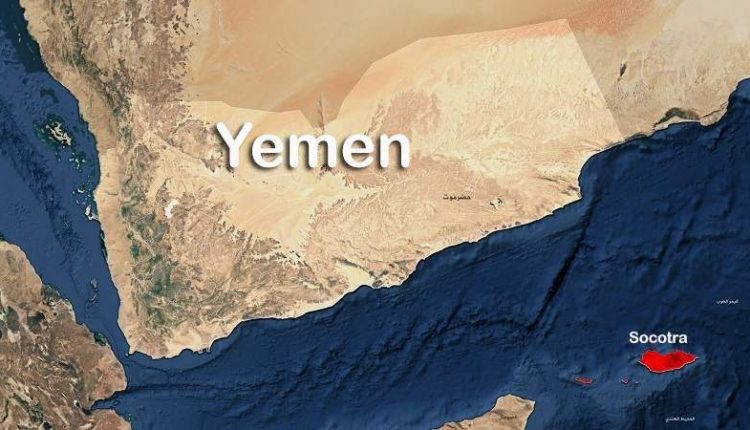Emirati Intelligence Appointed to Run Yemen’s Island (Socotra), Israel-Arab Normalization Enthusiast
Informed sources revealed on Sunday that the United Arab Emirates (UAE) has returned its first intelligence man in Yemen, Mahmoud Fath Al Khaja, to the island of Socotra.
The sources said that Al Khaja arrived in the past hours at Socotra International Airport, on board an Emirati military plane, after leaving the island more than a year ago.
The sources indicated that the return of Al Khaja comes within Emirati arrangements to install him as a military ruler of Socotra, to succeed Al-Anoud Ahmed Al-Saadi, who was recently appointed as a replacement for Khalfan Al-Mazari.
Al Khaja is the father of the Emirati ambassador to the Zionist entity, Mohammad Al Khaja. His return to Socotra at this particular time reflects the entity’s efforts to expand its control over the strategic island, in light of the escalation of Israeli moves in the Arabian Sea and the Indian Ocean.
Al Khaja had arrived on the island for the first time, in early 2010 during the era of the former regime, on an intelligence mission represented in the purchase of private lands in the beaches, plains and reserves, which, after the start of the US-Saudi aggression against Yemen, became Emirati Zionist military bases.
Mahmoud Al Khaja is considered the architect of the process of normalization with the Zionist entity. He was able, through his position in the UAE Foreign Ministry, and with the blessing of the enemy government, to appoint his son, Mohammad Mahmoud Al Khaja, as the first ambassador of the UAE to the Zionist entity, on February 14, 2021.
The United Arab Emirates arrived in Socotra in 2015 and, despite protests from nearly all Yemeni factions, have slowly expanded their influence since. Today, calls to the island are made using the UAE’s country code, and tourists fly from Abu Dhabi without a Yemeni visa — a situation that some argue amounts to annexation.
According to an article in Breaking Defense, the Emiratis have also established a military presence on Socotra. They are considering expanding that presence by putting missile defense sensors on the island, which would support a nascent, US-led alliance made up of the Israeli enemy and several Arab states.
The UAE state, which is implicated in the aggression against Yemen, began preparations for the establishment of a new military camp for its invading forces on the island of Socotra, in conjunction with a campaign to displace the island’s residents.
Local sources indicated that dozens of Emirati officers and a number of Israeli engineers began planning to create a new camp in Hadibo, the administrative center of the island. The sources added that the creation of the new camp comes with the purpose of absorbing the new military batches of the forces of the Saudi-led aggression that have flowed to the island during the recent period.
The sources indicated that the camp will be equipped with modern surveillance and intelligence equipment. An Emirati-Israeli military ship has arrived at the port of Socotra, carrying military equipment.
The Emirati regime continues its aggressive efforts to militarize and occupy the island, as part of a plan to isolate it from the rest of the Yemeni governorates, in conjunction with its continued forcible displacement of the local population on the island.
Local sources confirmed that, during the past months, Emirati forces expelled dozens of families from their homes on Abd al-Kuri Island, at gunpoint.
The sources pointed out that the new displacement comes after the start of construction work to build military runways and warehouses belonging to the joint Emirati and Israeli forces stationed in the archipelago.
The Euro-Mediterranean Human Rights Monitor had accused the UAE forces and their factions of expelling dozens of families from their homes in the Socotra archipelago, at the beginning of this year.
The evacuation of residents on the island of Abd al-Kuri coincides with the establishment of an Emirati-Israeli military base on the island, with the aim of strengthening control over maritime navigation routes in the Indian Ocean and the Arabian Sea.

